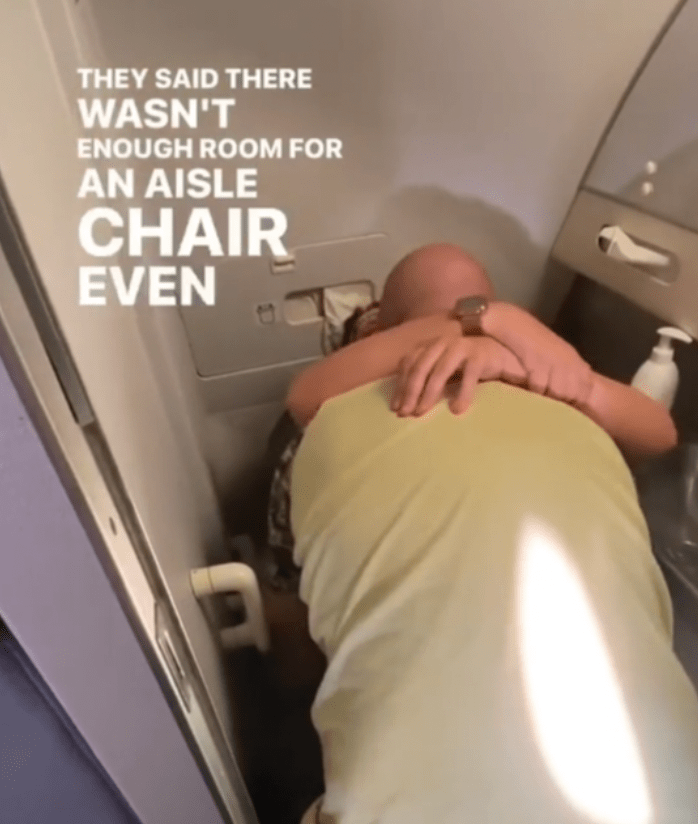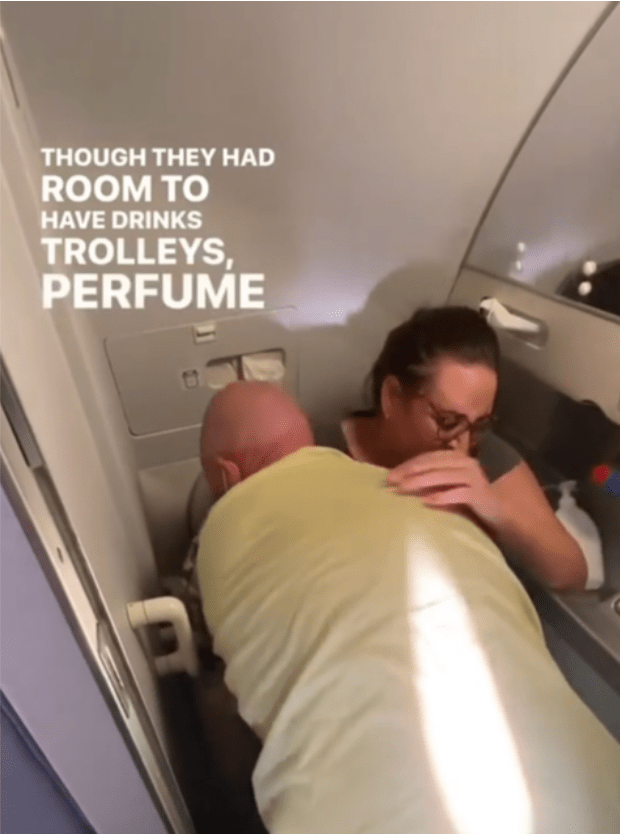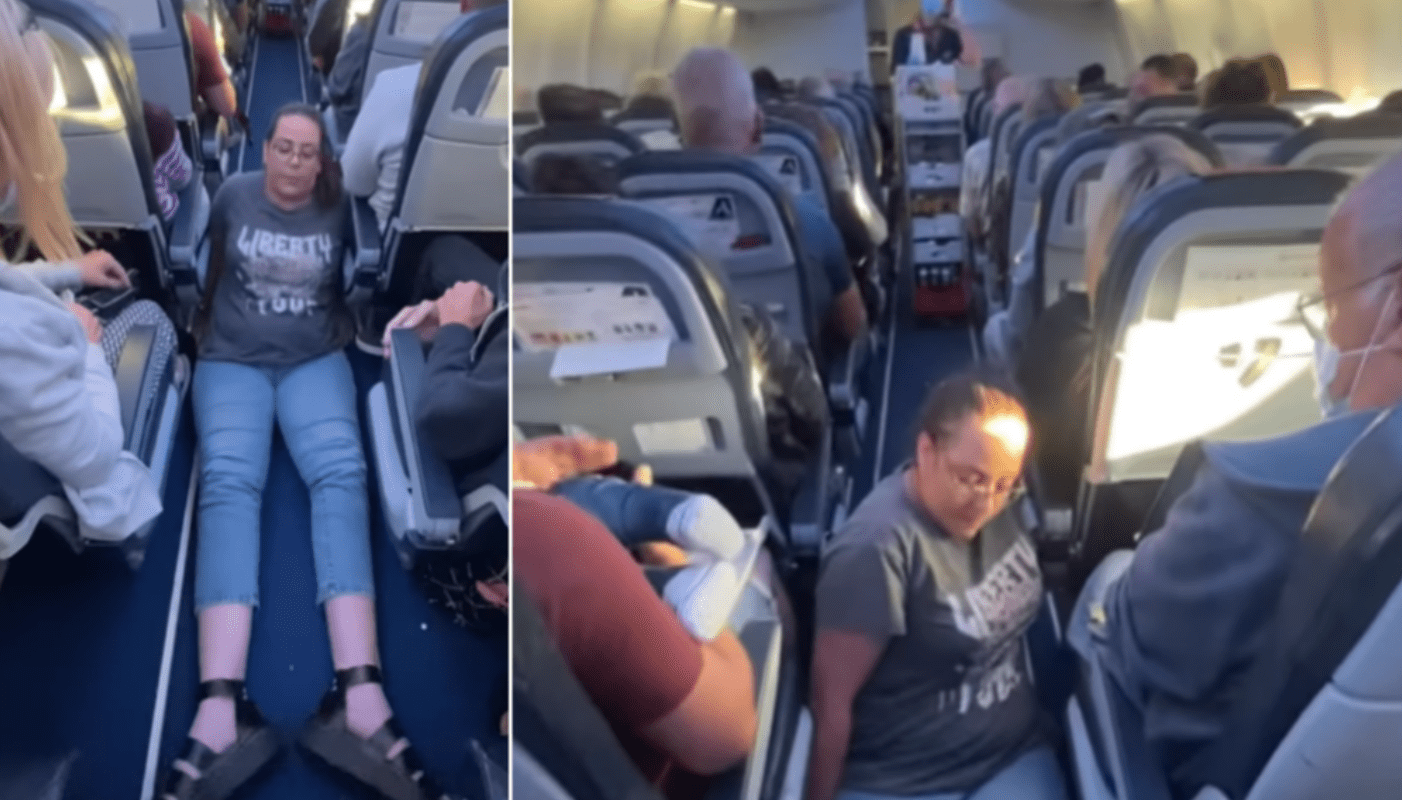Jennie Berry confronted a distressing dilemma during a harrowing flight that lacked an aisle chair. She claims that the airline staff subsequently issued her a particularly grim instruction.
A European airline presented a wheelchair user with two distressing choices: either “wear nappies” or crawl across the floor to access the restroom. This degrading experience, according to the individual, sheds light on the challenges that disabled individuals encounter while traveling and highlights the need for improved accessibility.

Jennie Berry, a resident of London, was preparing for her flight from the UK to Greece when she discovered that her TUI UK flight had been transferred to Alba Star Airlines. Unfortunately, she soon realized that the Boeing aircraft operated by the Spanish airline were far from wheelchair-friendly.
As someone paralyzed from the waist down, Berry has always relied on an aisle chair—a specialized chair used in airplanes for embarking, disembarking, and moving within the aircraft. However, this particular plane lacked such a chair.
The staff at Newcastle International Airport were reportedly taken aback by the challenges of assisting Berry in reaching a seat in the middle of the aircraft, as they had been informed that she couldn’t be seated near the front for easier access.
“The situation worsened when I requested to use the restroom during the flight, and they simply responded with ‘No, we don’t have an aisle chair onboard,’ without offering any alternative solutions,” Berry recounted.
Fellow passengers offered words of encouragement as they witnessed Berry dragging herself down the aisle to access the toilet, but she felt that the airline staff regarded her as an inconvenience.
“When nature calls, you have no choice but to answer,” she lamented.

Despite the challenging circumstances, Berry relied on her strong upper body strength and began to drag herself down the aisle towards the restroom. Meanwhile, the airline staff continued with their beverage service, audibly expressing their frustration and annoyance as she temporarily obstructed their path with the drinks cart.
Upon reaching the restroom, Berry was astonished to hear the staff suggest that disabled individuals should wear diapers on board as a solution. She expressed her disbelief, stating, “Apparently, that’s their idea of a solution – asking disabled passengers to relieve themselves in their seats. Let’s hope this approach doesn’t result in any unfortunate leaks.”
As an avid traveler, this was the first time Berry had encountered a situation where she did not have access to an aisle chair during a flight. However, the onboard staff claimed that in their “27 years of working in the airline industry,” they had never seen any issue with disabled individuals having to resort to wearing diapers.
In a state of shock, Berry’s partner, Owen, captured the entire incident on video and assisted her in reaching the restroom. Berry emphasized the importance of such video evidence, stating that without it, disabled individuals often struggle to make others believe the horrendous treatment they endure.
“What I’ve shared so far is just about the challenge of reaching the restroom, not even considering the condition of the facilities themselves,” Berry explained. “Even if an aisle chair is available, many disabled people are unable to transfer onto the small toilets.”
Upon exiting the restroom, a compassionate family seated at the front of the plane kindly offered Berry their seats, sparing her from having to drag herself back to the middle of the aircraft.
Berry expressed her deep disappointment, describing the incident as downright degrading and embarrassing. She remarked that life as a disabled person can sometimes involve such distressing experiences, and unfortunately, this was one of those times.
Being directly told to her face that she should wear a diaper when it was not necessary, and being informed that the airline was content with such a policy, left her feeling humiliated.
Berry emphasized that there is still a significant amount of work to be done regarding accessibility within the travel industry. She fervently hopes that this incident serves as an eye-opener, highlighting the need for change not only in terms of physical access but also in attitudes and perceptions.
She acknowledged that not all wheelchair users possess the upper body strength required to maneuver themselves along the aisle. Additionally, she pointed out that individuals in similar situations are often expected to endure the humiliation of soiling themselves.
Rather than seeking a refund for the flight, Berry’s primary goal is to advocate for industry-wide change and improved training for airline staff.





